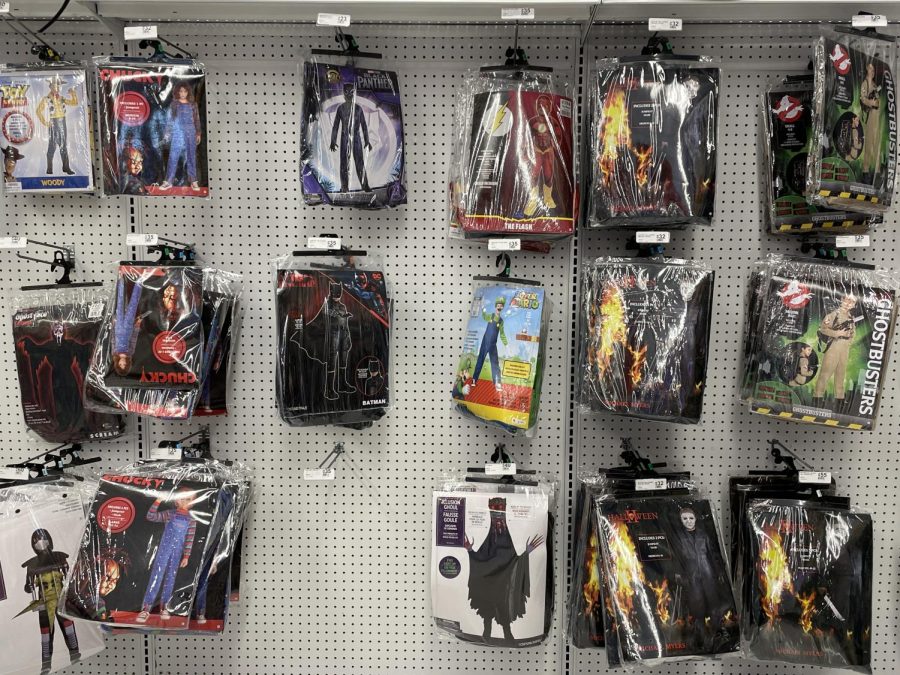The Problem With Culturally Insensitive Costumes
Why your outfit may be an issue
Cultural appropriation has always been an issue for many years. In recent years, the use of social media has shed more light on the issue during Halloween, making more people aware of the problem of insensitive costumes.
October 31, 2022
Halloween: the holiday most associated with horror, candy, and costumes. It’s common to see people all dressed up holding bags filled with candy during this time of year. With the many options to choose from, it can be hard choosing a costume that suits you most. However, while there are many different types of costumes to choose from, certain ones result in possibly offending someone based on cultural appropriation.
Cultural appropriation occurs when someone imitates the appearance of someone from another culture without understanding the significance behind it for their own personal benefit. Some examples include stealing tangible cultural property, ideas, or using another culture’s voice or style as your own. It’s especially prevalent during Halloween, and many costumes have been accused of this ignorance.
“I’ve seen many cultural appropriation costumes with Hispanic, Asian cultural appropriation with traditional outfits,” sophomore Violet Moreno said. “With the costumes people were dressed up as, [they] were predominantly non-Asian people who were dressing in traditional Asian clothing. Same with Mexican clothes. [This makes] me feel really upset because culture is something that is really important to me as a person of color. So when someone dressed up as something not from their culture, it definitely hurt and I [feel] disrespected.”
A study done by CSUSM found that people who participate in racially themed parties perpetuate stereotypes and degrade cultures without knowing how much harm they cause to others. Racial costumes are often seen as offensive for that same reason.
“Why are you wearing someone’s culture as their costume when you don’t actually know anything about said culture?” social studies teacher Jessica Kelly said. “It’s just too much. It’s the aspect of ‘I’m wearing someone’s culture’ and then [taking] it up a notch [by going] ‘Not only am I going to do this, but I’m going to make it a ‘sexy’ [outfit].’ It’s just so wrong.”
Sophomore Maria Flor Bordinhon has also had experiences where people have made assumptions about her based on her ethnicity.
“I feel like when [people] say, ‘Oh let’s dress like Brazilians,’ they make it look so exaggerated. [When] I look at my country, I’m like, ‘It’s not like that.’ So, I feel offended,” Bordinhon said. “I feel like people are stereotyping something and have only seen a single [perspective] of [a] particular culture. Sometimes I’d be like, ‘Oh, I’m Brazilian,’ and [people] already ask, ‘Do you guys like to do this type of stuff?’ People stereotype a lot of things [about] everyone.”
Oftentimes, the trends that celebrities participate in promote cultural appropriation, which can also influence their fans.
“[I saw] a Brazilian influencer, and she wore one of those Chinese dresses [for] a Halloween costume,” Bordinhon said. “She was just wearing that because she thought the dress was cool, and it was really sexualized. So, I think that’s really wrong. I feel like with celebrities, the people that follow that person are going to think it’s okay to do that, because they’re doing it.”
As a teacher, Kelly hopes to bring more cultural awareness by teaching her students in class about these issues.
“I just want [my students] to be knowledgeable, good people, and empathetic and care about what’s going on in the world,” Kelly said. “And that’s literally my only goal. I want [my students] to learn more, and I want [them] to be able to interact using the knowledge [they’ve] gained.”
While there will always be people partaking in this ignorance, researching before choosing a costume may prevent people from getting accused of culture appropriation.
“I feel like we should research a lot. But, the question is, ‘Why would you dress up as a Native American or even [wear] a Chinese dress?’” Bordinhon said. “Why would you even think about doing that if you’re not a part of the culture? So this Halloween, just don’t think about dressing like other people’s culture.”








